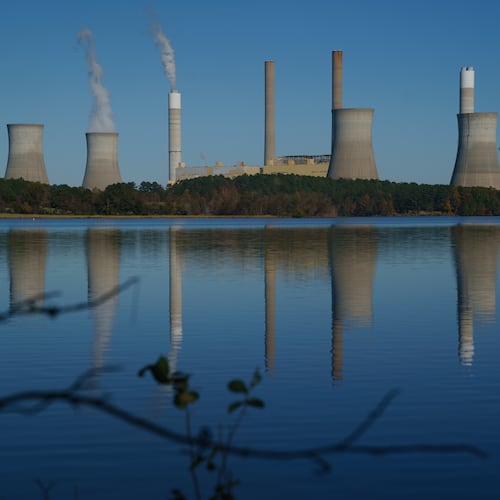Hartsfield-Jackson International Airport's proposed $32.4 million purchase of up to 60 acres of nearby land from the 122-acre former Ford plant land has Hapeville crying foul.
The closure of the Ford plant in 2006 was "very difficult for Hapeville," said Hapeville Mayor Alan Hallman. With it, Hapeville lost thousands of jobs, as well as its largest taxpayer and water user, he said.
To help cover the lost tax revenue, the city had pinned its hopes on the redevelopment of the Ford site by Jacoby Development, which bought the site from Ford. .
But now, Hartsfield-Jackson is planning to buy the land, saying the Federal Aviation Administration wants the airport to own a big chunk of the land to act as a runway buffer.
What's more, the airport has an option to purchase another large chunk of land, if Porsche opts not to use it. Porsche is building a $100 million complex on another plot of the former Ford plant land. If Hartsfield-Jackson gets that plot, it would take another large chunk of land out of Hapeville's tax base.
"It's just not good use of taxpayer money," said Hapeville city council member Lew Valero. "They're using it to cut us out of our own city limits property."
Two Atlanta city council committees voted Wednesday to pass ordinances for the deal onto the full council. But not all council members were in full support.
"I don't think it's in our best interest to continue to just -- or at least leave the impression that -- we're the big bully in the room," Moore said.
Because the land falls into a runway protection zone, it is eligible for FAA funding and the city is seeking $26 million in federal grant funds. The rest of the cost would be covered by passenger facility charges paid by travelers. And because the deal includes a smaller land swap, the ordinance to authorize the purchase waives some sections of city code, including a requirement for competitive bids for the sale of land.
Atlanta chief operating officer Peter Aman said he understands Hapeville's concern, but said the administration's philosophy is to acquire land for potential growth for the land-locked airport when available for a good price.
"I guess it's an old Southern thing," Valero said. "Both of us -- we don't want to sell part of the farm."
About the Author
Keep Reading
The Latest
Featured



